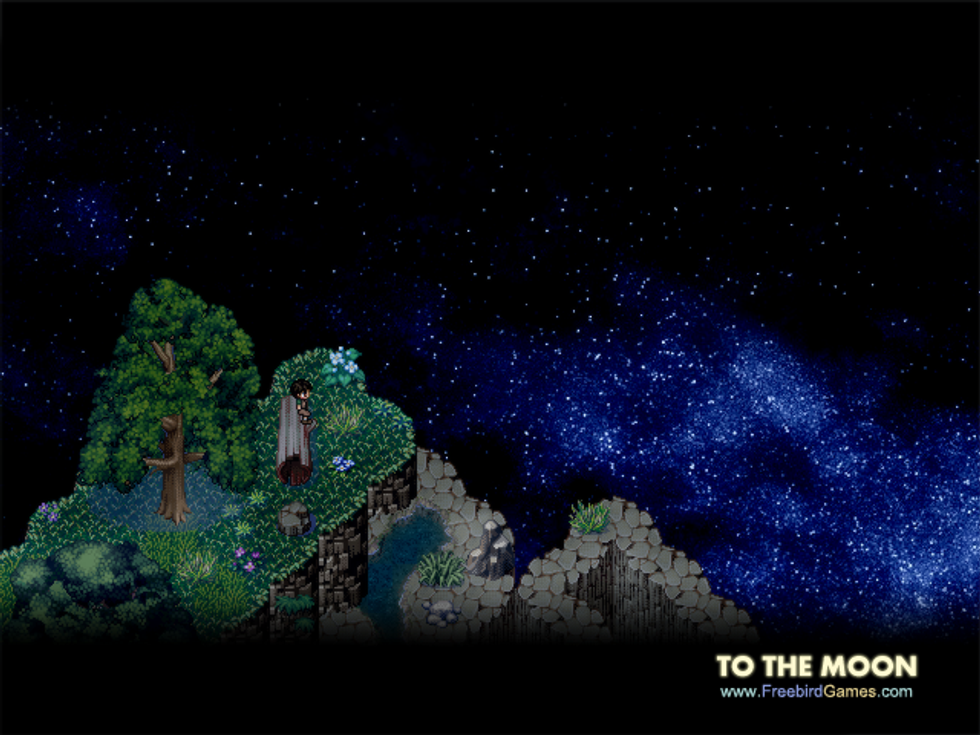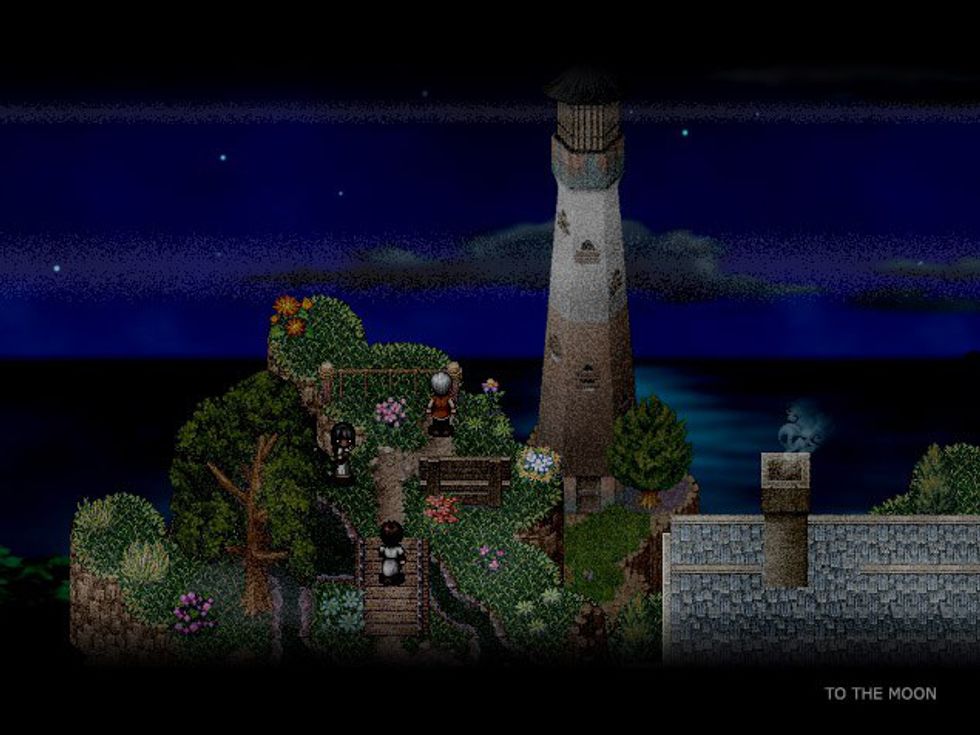People at my college ask always me about what my favorite video game is. It's no surprise — I go to a very tech-savvy college, and game-related majors are a large part of this school. Admittedly, though, I don't get to play as many video games as I would like. I only own a Nintendo 3DS, and I can't afford to buy a bigger console, or have the space to play it. It makes watching the hype for the new Nintendo Switch all the more painful. I wanna play the Switch so bad! It looks so cool! Oh well, I'll wait a few months before I try buying it.
Where was I? Right — my favorite video game.
Video games have a unique advantage when it comes to storytelling. While most mediums just tell their story straight, relying on their reader's interest to keep going, video games have interactivity, so players can actually interact with the story. It's a small step towards players actually experiencing the story itself. But video games don't always take this advantage. They like to focus more on the gameplay and mechanics than the story, which is fine, considering that there wouldn't be a game without anything to play. But when a video game decides to use its interactivity to tell a story rather than to play a game, it can do wonders — like my favorite game does.
My favorite game is called "To The Moon."
At first glance, "To The Moon" doesn't look like a very glamorous game. It's an indie role-playing adventure game that looks really old (surprise, the game was released in 2011). It doesn't have much in the way of gameplay; unlike other RPGs of its kind, there are no battles, no inventories, etc. The game consists of exploring the world around you and solving some puzzles that aren't really that hard. What's left, then, is the story.
And what a story it is.
You play as two scientists, Rosalene and Watts, in a future where a new technology gives people the ability to alter their memories and create new ones. This technology is used as a sort of wish-fulfillment machine for people at the end of their life, who wish to fulfill something they could not accomplish in real life. The two scientists are tasked by their company, Sigmund Corp. (heh, get it?) with the case of Johnny — an old man on his deathbed. He wishes to go to the moon... for some reason. Not even Johnny knew why he wanted to go, he just has a feeling that he must. To fulfill Johnny's wish, however, Rosalene and Watts must traverse through Johnny's memories in order to find the best place to implement the new memories, while also trying to figure out the mystery behind Johnny's longing to go to the moon.
The idea of changing your life via your own memories is an interesting concept. If you had the chance to start your life over, would you take it? I think there are plenty of people who would leap at the chance to redo a moment in their life that scarred them for life, or become something that they weren't. You're going to die anyway, why not make your last memories meaningful? The game does give us a glimpse at a future where you can fulfill your last regrets, and the effect this pursuit of happiness has on the people around us.
But while the sci-fi elements are intriguing, the main focus here is the mystery behind Johnny and his late wife, River. Johnny's real life had more downs than ups, mostly due to his wife's unusual behavior and attitude (hinted to be Asperger's, but the game doesn't say specifically) and mysterious attempts to jog his memories of something that happened in their past. The scientists come across scenarios that slowly form the piece of a bigger puzzle, and form the story of a couple. The story is both deeply emotional and heartbreaking when you realize that once the scientists figure out the life story of Johnny, they are going to change it for good. While their story will remain the same in the real world, Johnny's world is going to change forever, and you start to root for the couple, hoping that, despite everything, they will survive and endure together.
When the game isn't making you cry, though, it's making you laugh. The comedy comes from the antics of the two scientists, and the weird occurrences they come across. Both play off each other well; they are professionals, but they are also juvenile at times, providing levity in an emotional story and making them all the more endearing. Just as much as you root for Johnny and River, you cheer for Rosalene and Watts and hope that they can give Johnny what he asked for, and to make the right choices before it's too late.
Besides the story, this game looks great. A little goes a long way, but everything is highly detailed and downright gorgeous at times. There's this rustic feeling you get playing this game; maybe it's from the warm colors or the way lighting is used, but I always feel warm and cozy playing this game. The music is also beautiful; the game's creator was also the composer, and he is extremely talented at both game design and scoring music. My favorite pieces are the piano ones, since they are just so expressive and add another layer of warmth to the game. Special shoutout to "Everything's Alright," the only song with vocals and the one that makes me cry. Such a simple song goes a long way and tugs your heartstrings — just like the game it comes from does.
This game may not seem like much, but it made a big impact on me. Up until I played the game, I thought video games didn't really care about storytelling orbiting emotion. I was very wrong about that, and this game was the first to open my eyes to that concept. I'm glad that I got the chance to play "To The Moon," and that very soon, I will get the chance to revisit this world when its sequel, "Finding Paradise,"comes out later this year (or next year, depending on when the creator finishes the game). The creator said that the sequel won't be as emotional, but rather intellectual. Either way, I expect that I will enjoy the ride no matter what. I loved what "To The Moon" did with storytelling, and I can't wait to enjoy another great story soon.

"To The Moon" is available on Steam, GOG.com and the Humble Store for Windows, Mac and Linux. You can also buy the soundtrack on Bandcamp and iTunes, which I highly recommend. Oh, and there was a sequel-kind-of-sort-of called "A Bird Story," which you can also find on Steam. Though, I think it might be more of a prequel to "Finding Paradise." Try it out if you have the chance.
Photos from Freebird Games.










 The minimum wage is not a living wage.
StableDiffusion
The minimum wage is not a living wage.
StableDiffusion
 influential nations
StableDiffusion
influential nations
StableDiffusion












